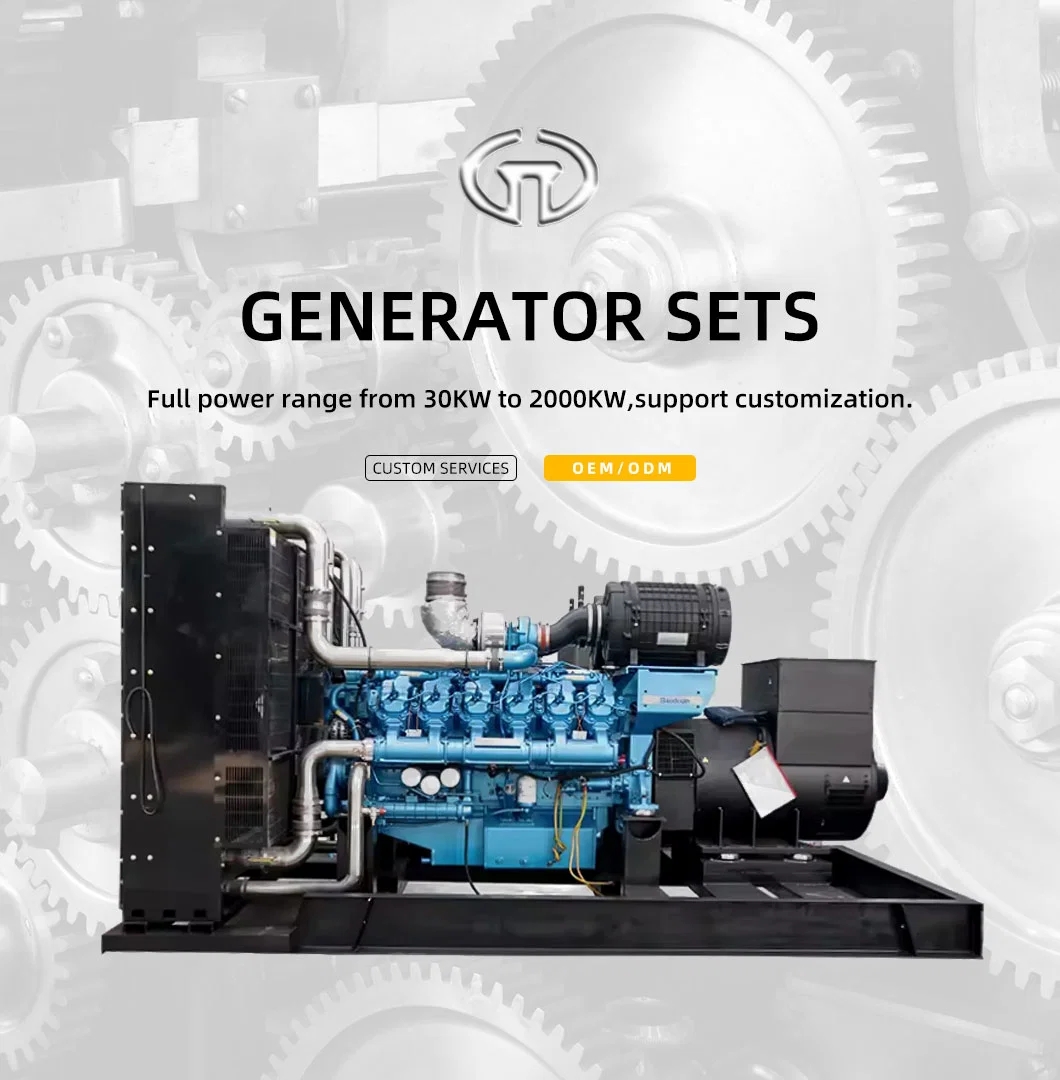Introduction
In remote areas where access to the main power grid is limited or non-existent, diesel generators play a crucial role in providing reliable and continuous power supply. These generators are especially valuable in off-grid locations such as rural communities, construction sites, mining operations, and disaster relief areas. In this article, we will explore the various aspects of diesel generators for remote power supply, including their working principles, advantages, applications, maintenance requirements, and environmental impact.
Working Principle of Diesel Generators
Diesel generators operate on the principle of converting chemical energy stored in diesel fuel into electrical energy through the process of combustion. The basic components of a diesel generator include an engine, alternator, fuel tank, cooling system, and control panel. When the generator is started, the diesel fuel is injected into the combustion chamber where it is ignited by the compression of air. This combustion generates high-pressure gases that drive the pistons in the engine, which in turn rotate the crankshaft connected to the alternator. The alternator then converts the mechanical energy into electrical energy, which is routed through the control panel for distribution to the connected loads.
Advantages of Diesel Generators for Remote Power Supply
Diesel generators offer several advantages that make them well-suited for providing power in remote locations:
1. https://www.lkpowerplant.com/product/quick-delivery-emergency-standby-power-400kw-silent-type-diesel-generator-set-for-peru/ : Diesel generators are known for their robustness and durability, making them reliable sources of power even in harsh environmental conditions.
2. Fuel Efficiency: Diesel engines are more fuel-efficient compared to gasoline engines, allowing diesel generators to provide power for extended periods without frequent refueling.
3. High Power Output: Diesel generators are capable of producing high power output, making them suitable for powering heavy-duty equipment and large facilities.

4. Easy Maintenance: Diesel generators require minimal maintenance compared to other types of power generation systems, reducing downtime and operational costs.
5. Longevity: Diesel generators have a longer lifespan compared to gasoline generators, providing a cost-effective solution for long-term power supply needs.
Applications of Diesel Generators in Remote Areas
Diesel generators find a wide range of applications in remote areas where reliable power supply is essential. Some common uses of diesel generators include:
1. Rural Electrification: Diesel generators are used to provide electricity to remote villages and communities that are not connected to the main power grid.
2. Construction Sites: Diesel generators power construction equipment, tools, and temporary facilities at remote construction sites where grid power is unavailable.
3. Mining Operations: Diesel generators are used in mining operations to power heavy machinery, lighting systems, and ventilation systems in underground mines.
4. Telecommunication Towers: Diesel generators are installed at remote telecommunication towers to ensure uninterrupted power supply for communication equipment.
5. Disaster Relief: Diesel generators are deployed in disaster-stricken areas to provide emergency power for shelters, hospitals, and relief operations.
Maintenance Requirements for Diesel Generators
Proper maintenance is essential to ensure the reliable performance and longevity of diesel generators in remote locations. Some key maintenance requirements include:
1. Regular Inspections: Conduct routine visual inspections of the generator, fuel system, cooling system, and electrical components to identify any signs of wear or damage.
2. Oil and Filter Changes: Regularly change the engine oil and filters according to the manufacturer's recommendations to ensure proper lubrication and engine performance.
3. Fuel Quality: Use clean and high-quality diesel fuel to prevent contamination and clogging of the fuel system, which can lead to engine issues.
4. Cooling System Maintenance: Keep the cooling system clean and well-maintained to prevent overheating and ensure optimal engine performance.
5. Battery Maintenance: Check the battery condition regularly, including the electrolyte level, terminals, and connections, to ensure proper starting and operation of the generator.
Environmental Impact of Diesel Generators
While diesel generators offer many benefits for remote power supply, they also have environmental implications due to their emissions and fuel consumption. Diesel engines produce pollutants such as nitrogen oxides (NOx), particulate matter (PM), carbon monoxide (CO), and hydrocarbons (HC) during combustion, which contribute to air pollution and climate change. To mitigate the environmental impact of diesel generators, several measures can be taken, including:
1. Use of Cleaner Fuels: Switching to low-sulfur diesel fuel or biodiesel can reduce emissions of harmful pollutants and improve air quality.
2. Emission Control Technologies: Installing emission control devices such as diesel particulate filters (DPF) and selective catalytic reduction (SCR) systems can help reduce emissions of NOx and PM.
3. Energy Efficiency: Implementing energy-efficient practices, such as load management and optimizing generator run times, can reduce fuel consumption and emissions.
4. Alternative Power Sources: Integrating renewable energy sources such as solar panels or wind turbines with diesel generators can reduce reliance on fossil fuels and lower emissions.
Conclusion
Diesel generators play a vital role in providing reliable power supply in remote areas where access to the main grid is limited. Their robustness, high power output, and ease of maintenance make them well-suited for various applications such as rural electrification, construction sites, mining operations, and disaster relief. However, it is essential to address the environmental impact of diesel generators by adopting cleaner fuels, emission control technologies, and energy-efficient practices. By balancing the benefits of diesel generators with environmental considerations, we can ensure sustainable and reliable power supply in remote locations for years to come.
